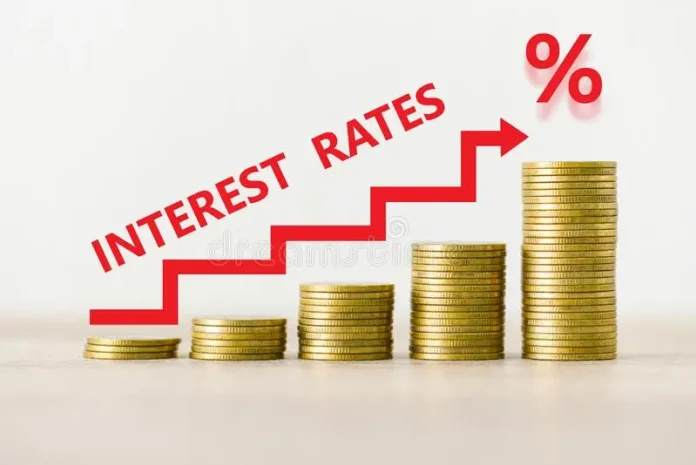Ghana’s business community may soon enjoy additional relief from high borrowing costs as IC Research predicts the Bank of Ghana will cut its policy rate again in November 2025, building on September’s milestone reduction that brought the benchmark to 21.5 percent.
The research firm’s forecast follows September’s dramatic inflation decline to 9.4 percent year-on-year, the first single-digit reading in over four years and a decisive return to the central bank’s medium-term target band of 6 to 10 percent for the first time since August 2021. This achievement marks a turning point for an economy that endured months of price increases exceeding 50 percent at their peak.
According to IC Research, the disinflation was broad-based, with goods inflation, which accounts for 72.5 percent of the overall consumer price index basket, easing by 270 basis points to 11.2 percent year-on-year. Services inflation also moderated by 60 basis points to 4.8 percent.
“In our view, this reflects recent foreign exchange shift to the upside and the resultant upticks in domestic energy prices,” IC Research explained in its analysis. “We view the first single-digit headline inflation in September 2025 as a confirmation that the Ghanaian economy has progressed decisively towards price stability after over four years of double-digit price increases.”
The firm believes authorities will be mindful of the need to lock in these gains with continued policy credibility. “The durable moderation in inflation risk has further strengthened the case for another cut in the nominal policy rate with downside scope for domestic bond yields in 4Q2025,” the research house predicted.
The Bank of Ghana already slashed its policy rate by 350 basis points to 21.5 percent in September, marking the second major rate cut in 2025. That reduction exceeded market expectations and signaled the central bank’s confidence that inflation pressures have moderated sufficiently to allow looser monetary conditions.
If IC Research’s prediction materializes at the next Monetary Policy Committee meeting in November, it could trigger a fresh wave of reductions in commercial lending rates, which have hovered around 30 percent for months, choking business activity and forcing many small and medium-sized enterprises to operate on tight margins or abandon expansion plans altogether.
For manufacturers, lower interest rates would translate to cheaper loans for expanding production capacity, restocking inventory, or hiring additional workers. Traders could access more affordable working capital to maintain operations during seasonal fluctuations. Households might find relief through reduced costs for personal and mortgage loans, potentially freeing up disposable income for consumption and boosting demand across sectors.
The inflation decline comes after years of tight monetary policy that saw the policy rate climb above 30 percent at its peak. Ghana’s economy has weathered significant headwinds, including global supply chain disruptions, rising energy costs, and fiscal pressures that drove inflation to uncomfortable heights and undermined business confidence.
The sustained disinflation through 2025 has already surpassed the government’s full-year inflation target of 11.9 percent, offering tangible relief to households and businesses that have endured prolonged price pressures. The trend suggests that both everyday goods and services, from food to transportation and rent, are finally cooling after a long stretch of persistent increases.
However, not everyone shares IC Research’s optimism. Some economists warn that the central bank should proceed cautiously, pointing to potential upside risks including ongoing cedi depreciation pressures, rising utility tariffs, and the approaching festive season when consumer spending typically surges. These factors could reignite inflationary pressures if monetary policy loosens too quickly.
The cedi appreciated over 20 percent year-to-date through the first eight months of 2025 after weakening 19 percent in 2024, which helped reduce imported inflation. Yet maintaining that stability while cutting rates requires a delicate balancing act. Currency weakness could quickly erode inflation gains and complicate the central bank’s efforts to sustain price stability.
Despite these concerns, IC Research appears confident that the case for further easing remains strong. With inflation now comfortably within the target band and real policy rates still elevated, the research firm believes the Monetary Policy Committee has sufficient room to continue its dovish trajectory without jeopardizing the progress achieved so far.
For Ghana’s business community, which has operated under extremely challenging credit conditions for much of the past three years, another rate cut would represent more than just numerical relief. It would signal that the worst may finally be over, that investment can be planned with greater confidence, and that growth can return to the forefront of economic policy after years dominated by stabilization efforts.
As the November Monetary Policy Committee meeting approaches, all eyes will be on Governor Ernest Addison and his colleagues to see whether IC Research’s prediction proves accurate. If it does, Ghana’s economic recovery could gain meaningful momentum heading into 2026, with businesses breathing easier and consumers spending with renewed confidence.
Source: newsghana.com.gh











